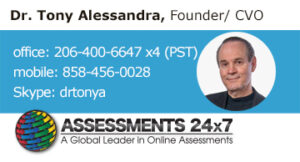







Today’s business environment, markets, and industries are nothing if not complex and multi-faceted. Apple owning Amazon $30million a month despite competing across multiple verticles attests to the complexities of the relationships that business leaders face daily. However, with every new relationship, with every new facet that we see in business and organizations, the complexity is only compounded by the fact that every one of us views these differently. This matters in working on customer and employee experience, product design and customization, marketing and sales outreach, financial and investor relations, every single aspect of business that involves people. Moreover, that is every part of our companies.
Being able to see other’s viewpoints, and putting yourself in someone else’s shoes can become one of the most challenging pieces in creating better relationships. After all, we all know our customers and what they want, but have we taken the time to truly understand what the customer goes through when interacting with our business.
One of my favorite stories is from Expereince Enterprises is how they had a call center manager call into his system and the (almost predictable) results that came about.
Taking the time, asking genuine—open-ended—questions, and reminding ourselves that our businesses are not one-sided, makes a difference in how we can grow and differentiate our organizations.
None of us knows everything, and fewer of us can see the complex picture of today’s business ecosystems. Every strategic framework that I have seen and used presents an intriguing structure, but most leave more questions than answers.
Filling the gaps in our knowledge is essential, but to truly grasp, interpret, and act on this information we need people. We need different viewpoints, experiences, ideas, and motivations to become successful.
Moreover, this allows for increased adaptability and resilience in our organizations. The ability to critically think around problems, solve issues by using old ideas in new ways provides for far-reaching implications in our practices. It is not about re-inventing the wheel when anything goes awry but finding ways to reimplement and adapt old knowledge in new ways. Being mindful of the various perspectives, ideas, and abilities within an organization allow for this to happen. The greatest mistake in business is often saying, “We have always done it that way” and allowing no further room for additional input.
Ed Brzychcy is former U.S. Army Infantry Staff-Sergeant with service across three combat deployments to Iraq. After his time in the military, he received his MBA from Babson College and now coaches organizational leadership and growth through his consultancy, Blue Cord Management.